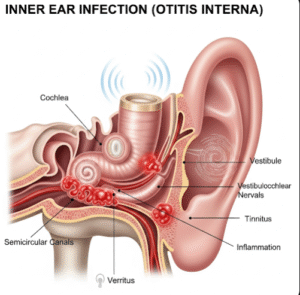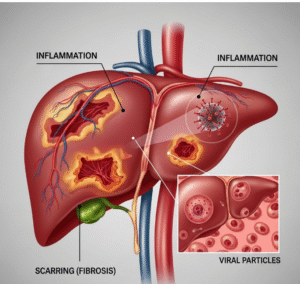Overview
Low neutrophil count, medically known as neutropenia, is a condition in which the number of neutrophils— a type of white blood cell important for fighting infections— falls below the normal range. Neutrophils are crucial for defending the body against bacteria and fungi, and a decrease can increase susceptibility to infections, which may become severe or life-threatening.
In Korea, hospitals and specialized clinics offer comprehensive evaluation and treatment for neutropenia, including blood tests, bone marrow analysis, infection prevention strategies, and advanced therapies. Early recognition is vital to prevent complications and maintain immune function.
Key Facts
- ➔ Normal neutrophil count ranges from 1,500–8,000 cells/µL of blood.
- ➔ Neutropenia increases the risk of bacterial and fungal infections.
- ➔ Causes can be temporary or chronic, depending on underlying medical conditions or medications.
- ➔ In Korea, hematology and internal medicine clinics provide diagnostic testing, monitoring, and tailored treatment.
- ➔ Treatment focuses on preventing infections and addressing the root cause of neutropenia.
What is Low Neutrophil Count?
Neutropenia is defined as a reduction in circulating neutrophils, which play a key role in the immune system:
- ➔ Mild neutropenia: 1,000–1,500 cells/µL; often asymptomatic
- ➔ Moderate neutropenia: 500–1,000 cells/µL; increased risk of infections
- ➔ Severe neutropenia: <500 cells/µL; high risk of severe infections and sepsis
- ➔ Clinical significance: Even a modest decrease can compromise immunity, while severe neutropenia requires urgent medical attention
- ➔ Types of neutropenia:
- Acute neutropenia: Short-term reduction, often due to infection or medication
- Chronic neutropenia: Long-term reduction caused by autoimmune disease, bone marrow disorders, or genetic factors
What Symptoms Are Related To
Low neutrophil count may not directly cause symptoms, but it increases infection risk, which can manifest as:
- ➔ Frequent or severe infections, often bacterial or fungal
- ➔ Fever, chills, or sweating
- ➔ Sore throat, mouth ulcers, or gum infections
- ➔ Fatigue or weakness
- ➔ Skin infections or slow-healing wounds
- ➔ Respiratory infections: Persistent cough, shortness of breath, or pneumonia
- ➔ Gastrointestinal infections: Diarrhea, abdominal pain, or nausea
Early detection of infections is critical in preventing complications.
What Causes / Possible Causes
Neutropenia can result from various medical, medication-related, and lifestyle factors:
- ➔ Bone marrow disorders: Aplastic anemia, leukemia, myelodysplastic syndromes
- ➔ Autoimmune diseases: Autoimmune neutropenia, lupus, or rheumatoid arthritis
- ➔ Infections: Viral infections (HIV, hepatitis, influenza) or severe bacterial infections
- ➔ Medications: Chemotherapy, immunosuppressants, antibiotics, or antipsychotics
- ➔ Nutritional deficiencies: Vitamin B12, folate, or copper deficiency
- ➔ Congenital disorders: Cyclic neutropenia or other genetic syndromes
- ➔ Other causes: Radiation exposure or idiopathic (unknown cause)
Identifying the specific cause is essential for tailored treatment and infection prevention.
When Should I See My Doctor
Medical evaluation is necessary if you experience:
- ➔ Frequent or unusual infections
- ➔ Fever above 38°C (100.4°F) or chills
- ➔ Persistent fatigue or malaise
- ➔ Mouth sores, gum infections, or slow-healing wounds
- ➔ Recent chemotherapy, radiation, or use of medications affecting white blood cells
Prompt consultation ensures timely diagnosis and management to prevent severe infections.
Care and Treatment
Management of low neutrophil count depends on severity and underlying cause:
- ➔ Treating underlying conditions: Autoimmune disorders, infections, or bone marrow diseases
- ➔ Medication adjustment: Reducing or changing drugs that cause neutropenia
- ➔ Immune support: Growth factors (e.g., G-CSF) to stimulate neutrophil production in severe cases
- ➔ Nutritional support: Supplementation of vitamin B12, folate, or copper if deficient
- ➔ Infection prevention: Strict hygiene, avoiding crowded places, and prompt treatment of infections
- ➔ Hospital care: Hospitalization for severe neutropenia with active infection
- ➔ Monitoring: Regular complete blood counts to track neutrophil levels
With proper care, most patients can maintain immune function and reduce infection risk.
Treatment Options in Korea
Korean hospitals provide specialized services for diagnosing and managing neutropenia:
- ➔ Diagnostic evaluations: Complete blood count (CBC), bone marrow biopsy, immunological testing, and genetic studies
- ➔ Specialist consultations: Hematologists, internists, and infectious disease specialists
- ➔ Medical therapy: Growth factors, immunosuppressive therapy, or antiviral/bacterial treatments depending on cause
- ➔ Supportive care: Infection prevention protocols, dietary guidance, and vitamin supplementation
- ➔ Hospitalization: For severe neutropenia or active infections requiring intensive care
- ➔ Multidisciplinary approach: Coordinated care for complex cases involving hematologic, infectious, and autoimmune conditions
- ➔ Leading hospitals: Seoul National University Hospital, Asan Medical Center, and Samsung Medical Center provide advanced diagnostics, individualized treatment, and follow-up care
In Summary: Low neutrophil count (neutropenia) is a reduction in key immune cells, increasing susceptibility to infection and potentially signaling serious underlying conditions. Timely evaluation and treatment in Korea can identify causes, restore neutrophil levels, and prevent complications.
- ➔ Key Takeaway: Persistent or severe neutropenia requires prompt medical assessment to protect against infections and manage underlying causes.
- ➔ Action Point: Consult hematology or internal medicine specialists for diagnosis, targeted therapy, infection prevention, and ongoing monitoring.












